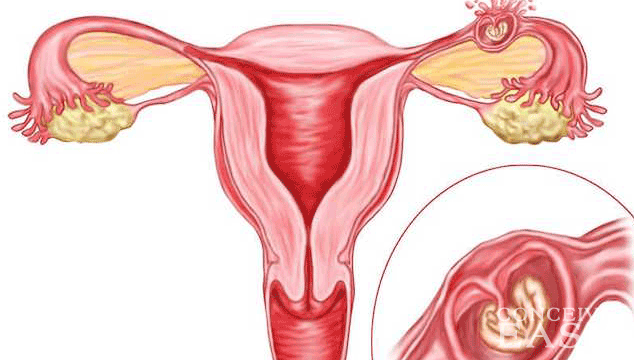![]() The information provided by our expert should not constitute a diagnosis of your condition. Always consult a medical practitioner or healthcare provider for a formal diagnosis. By making use of this content, you agree that ConceiveEasy and the expert assume no liability.
The information provided by our expert should not constitute a diagnosis of your condition. Always consult a medical practitioner or healthcare provider for a formal diagnosis. By making use of this content, you agree that ConceiveEasy and the expert assume no liability.
When you become pregnant, your body should release and egg from your ovaries which will then travel through your fallopian tubes and into your uterus. At this point, the egg will become fertilized and attach to the uterine lining inside your uterus. However, with a tubal pregnancy, this process happens a little differently. Claim Your 20 Free Pregnancy Tests – Click Here
During these pregnancies, the egg will stay inside your fallopian tube where it will become fertilized. While most of the time, these embryos will simply pass, occasionally, they will attach to the ovaries, another organ in your abdomen or even your cervix. This happens in about one out of every 50th pregnancy and they require emergency treatment.

Compared to miscarriage, ectopic pregnancy is slightly different. For the most part, an ectopic pregnancy will develop during the very early weeks of a pregnancy. At the point that most are discovered, the woman doesn’t even know that she is pregnant yet, so the situation can be shocking. Most of the time, these pregnancies are found by the 8th week of a pregnancy.
Sadly, these types of pregnancies won’t last and the baby won’t survive. In the rare case that a baby does survive the pregnancy, there are major health concerns for the mother. In fact, she has only a 50% chance of surviving if she allows the pregnancy to continue.
On a positive note, most women who do wind up having an ectopic pregnancy are able to go on to have a healthy pregnancy down the road.

There are actually several symptoms related to an ectopic pregnancy. For example, you may notice some light vaginal bleeding or nausea and vomiting that causes pain. Many women have lower abdominal pain as well as sharp abdominal cramps. Pain on one side of your body, dizziness and weakness are also common as is pain in the rectum, neck and shoulder.
In some rare cases, the fallopian tube actually ruptures. This could cause bleeding and pain severe enough to cause fainting. If you are experiencing any of these symptoms, it is important that you talk to your health care provider immediately.
The exact cause of a tubal pregnancy could vary from one woman to the next. Some women develop them when they have damaged fallopian tubes where the egg isn’t able to travel into the uterus. Those using an IUD could develop this type of pregnancy as could those with an STD or PID.
If you do develop a tubal pregnancy, it is important to have it treated as soon as possible. As the embryo continues to grow, there is a greater chance that the fallopian tube could rupture, which could cause major damage and health concerns for the future.










Comments